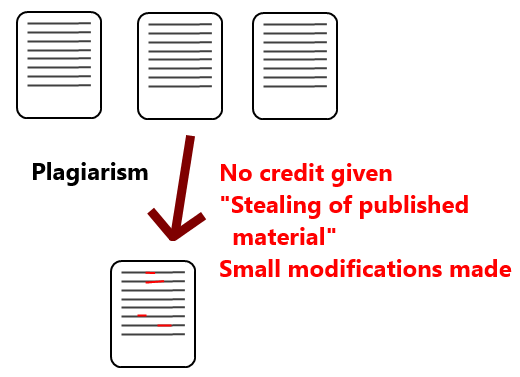Should You Go After Scrapers or Just Don’t Bother?


Content scrapers refer to marketers who try to pass off existing content as their own on their site. If you have a blog where you publish high-quality posts at a consistent basis for years, there’s a great chance that somebody is scraping your content.
How to find content scrapers

Copy and paste your blog post on the free plagiarism checker tool on domypapers.com. The site offers essay writing services to be submitted to your professors or posted on your site. It guarantees to provide clients with unique content so they don’t have to worry about plagiarism and duplicate content issues.
Upon using the free plagiarism checker feature on the site, you will be able to determine whether or not your content is being scraped by other sites.
For additional resources to help you find scrapers, read “Content Scrapers – How to Find Out Who is Stealing Your Content & What to Do About It.”
Should I be worried about content scrapers?
Opinion about content scrapers is unanimous – scraping is a lazy and ultimately ineffective approach of getting traffic to one’s website. Instead of creating unique, actionable, and helpful content on their own, these people instead take ownership of someone else’s work without permission or proper attribution.
However, opinion on whether to hunt down these scrapers is overblown. While it may be annoying to see your content published on other sites without your knowledge, there’s really nothing to worry about.
Google webspam head Matt Cutts already assured site and blog owners last year that scrapers will not gain anything by stealing your content.
The only time content scrapers can damage site owners is if their content – the one they stole – outranks the owners’ on Google search results. To solve this, Google encourages them to fill out the Google Scraper Report released early this year. While there are no guarantee that Google will penalize the scraper sites and move your site up the rankings, this is nonetheless a good sign that Google is actively taking steps to bring down scrapers off their search results.
This is on top of the Panda 4.0 released in the middle of the year, which also penalizes scraper sites from search rankings!
Take action nonetheless!
While there’s little reason for you to spend most of your time hunting down scrapers, you can benefit from their malpractice in the simplest of ways: If you are using WordPress, download the WordPress Yoast SEO and activate the RSS footer. This way, you can add your author bio and lay claim of the post as your own even if it gets scraped by websites!
Below are additional resources to make content scrapers work to your advantage or completely put them down for good!
- How to Keep Scrapers from Ruining Your Content Strategy
- 7 Tips and Tools to Stop Content Thieves in their Tracks
- Stop Scrapers From Stealing Your Content
Are there other effective ways not mentioned above on how to make content scrapers pay for stealing your content? Share your tips and advice by commenting below!
About the author
Charles Beckman is a college student studying Psychology, who struggles with writing difficulties and feels a bit skeptical about the education system. Charles likes all sorts of challenges and adores Steve Jobs.
Freelance writer for hire by day. Heavy sleeper at night. Dreams of non-existent brass rings. Writer by trade. Pro wrestling fan by choice (It's still real to me, damnit!). Family man all the time.


Hi,
Indeed I felt relieved reading this post. So, if scrapers puts the link, then it benefit us, if they outrank us, then we can do a DMCA request.
Thanks buddy and Google for the continuous effort to make this world a better place.